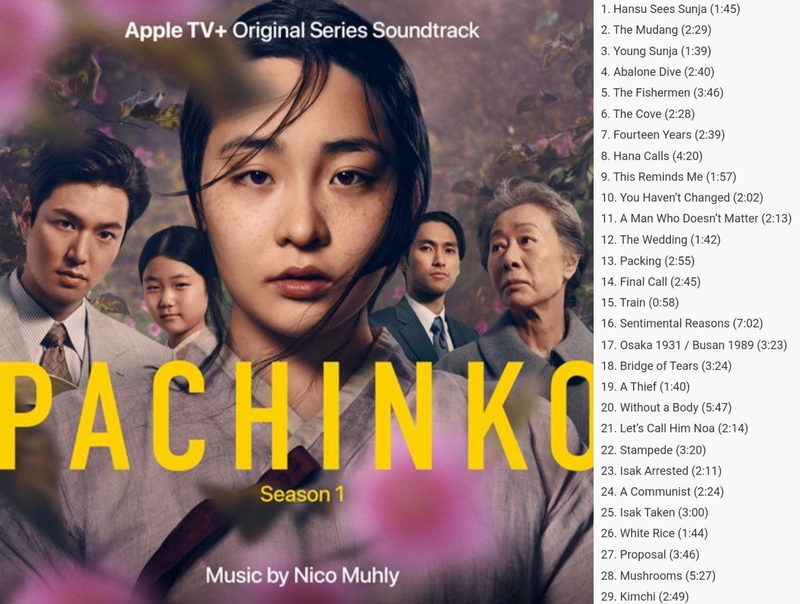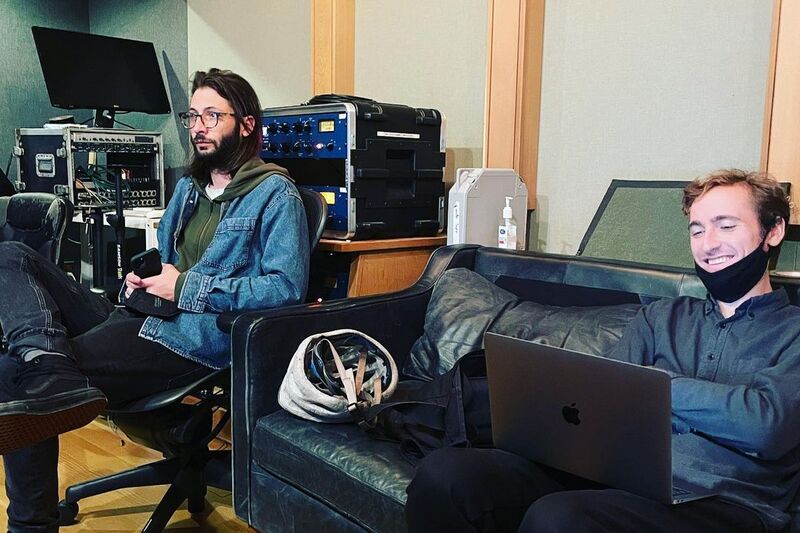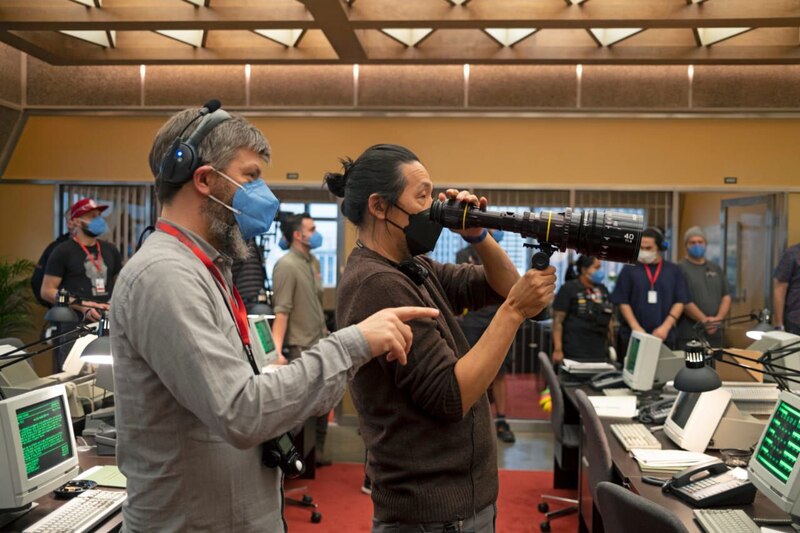- 한국어
- English
- 日本語
- 中文
- العربية
- Español
- Français
- Deutsch
- Pусский
- Tiếng Việt
- Indonesian
By Honorary Reporter Alaa Atef Ebada from Egypt
Photos = Apple TV+, Nico Muhly, Florian Hoffmeister
Apple TV+'s hit series "Pachinko" owes its success to many people behind the scenes, including score composer Nico Muhly and cinematographer Florian Hoffmeister.
A good script, cast and director are essential ingredients for a good drama, but other key elements are a good soundtrack and camerawork.
Muhly is an American composer of contemporary music who writes orchestral pieces. "I don't compose for film or TV that often; instead I write orchestra and operas," he said in an audio interview on April 13. "But I was chosen by Soo Hugh to work for the drama."

The "Pachinko" soundtrack was composed by Nico Muhly.
Muhly said, "I read 'Pachinko' right away when it was published. But I knew very little of the history," adding, "One of the biggest differences between the show and the book is that the book goes in chronological order whereas the show does not."
So, he said he figured out that the music needs to be uplifting to emphasize the historical setting.
On handling the jumps between time periods, countries and characters and connecting them, he said, "One thing I said very emphatically is that I did not want to use any Japanese or Korean instruments because it would be inappropriate. So we decided to use acoustic and electronic music to avoid receptivity."
"Instead of writing theme songs for each character, I tried to create a 'family tree' all stemming from Sunja's roots."
He added, "My favorite track over the 29 pieces is actually the very first one, 'When Hansu sees Sunja'. This was really important track because Hansu is a complicated character. You shouldn't give away too much about what he's like at the very beginning, so I needed to make that kind of a little ballet almost the way that works. It's sort of a tango."

Score composer Nico Muhly (right) views studio shots of "Pachinko."
Hoffmeister is a native of Germany and member of the British Society of Cinematography who had worked with the drama's showrunner Soo Hugh before "Pachinko."
"There were two big elements: the identity of space and continuity of time. When I discussed with (director) Kogonada and Soo Hugh from the beginning, we agreed not to distinguish between the timelines. We wanted the drama to look as if all the scenes happened at the same time," he said in an audio interview on April 22.
On his reaction to being offered the job, he said, "When Soo Hugh sent me the scripts, I was a little bit scared since the drama was about Korea and its identity. Since I was not Korean, I wasn't sure if I was the right person to do this. But as she introduced the director Kogonada, who already recognized my work, so we got along well."
As a cinematographer, Hoffmeister said he preferred not to read the novel before shooting since novels often develop in a chronological sequence. "I think the adaptation is an artistic step that lays completely in the hands of Soo Hugh and her team of writers," he said. "I wanted to connect the steps they have taken, but not with the original material. I wanted to film what is written in the script and not include something with my own process of adaptation."

Florian Hoffmeister (left) had worked with "Pachinko" showrunner Soo Hugh before the series.
On his favorite scenes, he said, "I like almost every scene. It was so nice shooting on locations and shooting in the cove in Busan."
One of his favorite scenes is from Episode 3 when Isaac proposes that the pregnant Sunja join him in Japan. "Reading it, I just knew I wanted to shoot the series because I was so touched by the way that these very young people had to deal with their issues and how deliberate and grown up they managed to communicate about it," he said. "To me, I can still almost feel every moment of that scene that was remarkable."
enny0611@korea.kr
*This article is written by a Korea.net Honorary Reporter. Our group of Honorary Reporters are from all around the world, and they share with Korea.net their love and passion for all things Korean.